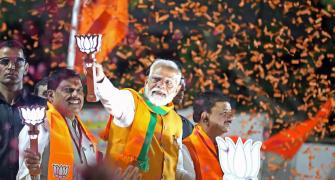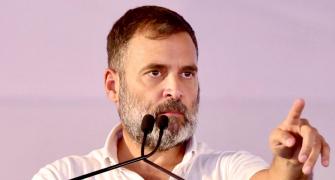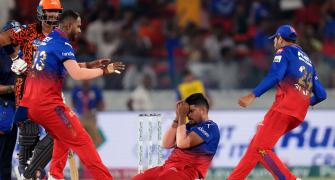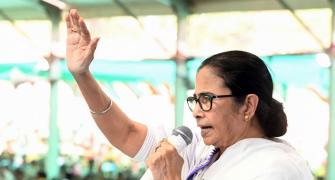That contemporary artists soaring on high prices had dropped quality but upped quantity by hiring artists to produce work under their direction? That studios had, in effect, turned into ateliers?
There were, even then, a few oracles who stood their ground and said the contemporaries were doomed to fail because: a) their prices were rising too fast and would prove unsustainable, sometimes (and controversially) even bettering established moderns; b) this though the modern painters had a long history of work behind them, which the contemporary artists could not claim for themselves; and that the contemporary artists, lured by the crores, were not creating anything new, hence losing their edge.
By now it's common knowledge that the inevitable has happened, prices have crashed for contemporary artists - Chowdhury's drawings fetch Rs 6 lakh, Subodh Gupta's market value has collapsed, and evaluations in the secondary market are down from crores to lakhs - but the blue chip moderns can be cashed in at their full value, at least for their top quality works.
For some time therefore, the art fraternity has been in a state of panic, but as always, there is a silver lining that, unexpectedly, comes from both the artists and a few, select gallerists who had been disenchanted at the manner in which the contemporaries had chosen lucre over content. "Ten years back," says one such gallerist, "you saw the contemporary artists doing such wonderful work; but you could no longer say it two years back."
Many of the contemporaries did get carried away - they no longer needed to deal with homegrown, stuffy critics as they grabbed attention from art fairs and biennales and triennales around the world wanting a slice of economically liberated India and her arts - and found their comeuppance surprisingly suddenly. And yet, no one is singing a dirge just yet. The golden period of contemporary art, the same soothsayers are now predicting, will begin circa 2009.
Critically, what it means is that the talent exists but in the race for shows, auctions, participations and public declamations, it has taken a backseat to financial drivers that have since dried up. A number of people within the fraternity I spoke with in the last fortnight now say their stand on the talent available will be vindicated.
With sales slowing down, prices down to moderate levels in the secondary market, and an abating fever of multiple participations, the artists will concentrate once more on their core task: of generating ideas. "You will see far more experimentation again" - the hallmark of the contemporaries - "and work that will unquestionably put them ahead of their peer groups from several other countries."
The last year has seen the near-collapse of contemporary artists not just in India but all over the world, not least those in the West, and from emerging crucibles such as Vietnam and Korea. China, for long touted as a fragile market, has also suffered, but seems to be doing marginally better than India.
"Indian contemporaries, now that they are not being pushed to have any shows, will spend time on aesthetics, planning and experimenting and working," I am assured.
Not only have you not heard the last of them yet, two years from now you could expect path-breaking shows from at least some of them. And the artists to watch out for? Both Dodiyas (Atul and Anju), Jittish Kallat, Subodh Gupta, Riyas Komu, Jagannath Panda, Bharati Kher Shibu Natesan, T V Santhosh, Chittrovanu Mazumdar.








